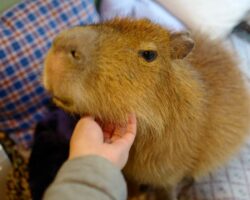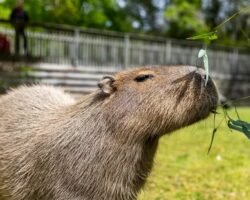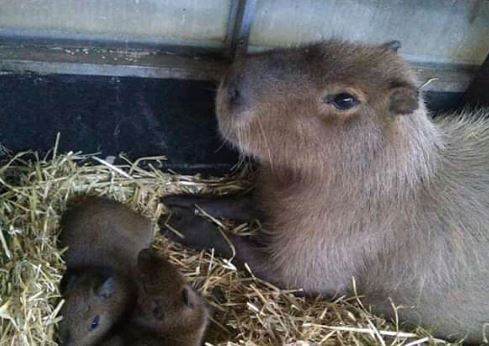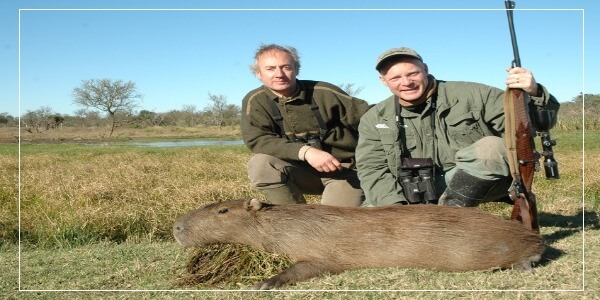Getting a Pet Capybara Uk
Capybaras are large, intelligent, and sociable animals that have been gaining popularity as pets in recent years. Originating from South America, they are the largest rodents in the world and are often described as giant guinea pigs or oversized hamsters. With their cute faces, friendly personalities, and gentle demeanor, it’s no wonder why many people in the UK are considering adopting a pet capybara. However, owning a capybara is a big responsibility, and there are many factors to consider before making the decision to bring one into your home. In this guide, we’ll explore everything you need to know about getting a pet capybara in the UK, from legal requirements to housing and care needs. So, if you’re considering a capybara as a new addition to your family, keep reading to learn how to make the best decision for you and your furry friend.
Understanding the Legal Requirements for Owning a Pet Capybara in the UK
In the UK, owning exotic animals like the capybara is subject to strict regulations and licensing requirements. This is to ensure the safety and welfare of both the animal and the public. Capybaras are considered a non-native species, which means that they may pose a risk to the environment if they escape or are released into the wild.
To legally own a pet capybara in the UK, you must obtain a license from your local council or the Animal and Plant Health Agency (APHA). The application process typically involves providing information about the type and size of enclosure you plan to keep the animal in, as well as your experience and qualifications for caring for the capybara.
In addition to obtaining a license, there are several other legal requirements that you must meet when owning a pet capybara in the UK. These include:
- Microchipping: You must microchip your capybara and register it with a government-approved database.
- Health checks: You must have your capybara examined by a veterinarian at least once a year to ensure that it is healthy and free from infectious diseases.
- Record-keeping: You must keep accurate records of your capybara’s diet, health, and behavior, as well as any veterinary treatments or medications it receives.
- Escape-proof enclosure: You must provide an escape-proof enclosure that is large enough to allow the capybara to move around freely and exhibit natural behaviors. The enclosure must also provide protection from the elements and have appropriate heating and lighting.
- Insurance: You must have public liability insurance to cover any damages or injuries that your capybara may cause to other people or their property.
It’s important to note that owning a capybara is a significant responsibility, and it requires a lot of time, effort, and financial resources. Before considering getting a pet capybara, you should research the species thoroughly, ensure that you can meet all the legal requirements, and have a realistic understanding of the costs and challenges involved.
Finding a Reputable Capybara Breeder or Seller in the UK
Finding a reputable capybara breeder or seller in the UK can be challenging, as these animals are not widely available and are subject to strict regulations. However, with some research and effort, it is possible to locate a trustworthy source for your pet capybara.
One way to find a reputable capybara breeder or seller is to search online. There are several websites that specialize in exotic animal sales, such as www.exotic-pets.co.uk and preloved.co.uk. These websites may have listings for capybara breeders or sellers in the UK, along with photos and descriptions of the animals they have available.
Another option is to search for capybara breeders or sellers on social media platforms like Facebook or Instagram. Many breeders and sellers have business pages or groups where they post updates on available animals, care tips, and other information.
You can also check with local exotic pet stores or wildlife sanctuaries, as they may be able to refer you to a reputable capybara breeder or seller. Additionally, you can reach out to your local council or the Animal and Plant Health Agency (APHA) for guidance on where to find capybara breeders or sellers in your area.
When it comes to contacting breeders or sellers, most will have a website or email address that you can use to get in touch. Some may also have phone numbers or social media profiles that you can use to ask questions or arrange a visit. Keep in mind that reputable breeders and sellers may have a waiting list for their capybaras, so be prepared to wait if necessary.
Preparing Your Home for a Pet Capybara: Housing, Enclosures, and Supplies
Preparing your home for a pet capybara is an important step in ensuring the animal’s health, safety, and happiness. Capybaras require a lot of space to move around and express their natural behaviors, so it’s important to provide them with a suitable enclosure and the necessary supplies.
Here are some tips for preparing your home for a pet capybara:
- Choose an appropriate location: Capybaras need a large, outdoor space to live in. Ideally, they should have access to a pond or other body of water for swimming. Choose a location that is protected from extreme weather conditions and predators.
- Build an enclosure: The enclosure should be large enough to allow the capybara to move around freely and exhibit natural behaviors. The minimum recommended size is around 40 square meters (430 square feet) for a single adult capybara. The enclosure should be escape-proof and have plenty of shade, shelter, and areas for the capybara to hide and rest.
- Provide bedding: Capybaras like to dig and burrow, so provide them with a thick layer of straw, hay, or other bedding material. This will also help to absorb moisture and odor.
- Install heating and lighting: Capybaras are tropical animals and need warm temperatures to thrive. Provide heating and lighting in their enclosure to keep them comfortable and healthy.
- Supply water: Capybaras need access to clean, fresh water at all times. Provide a shallow pool or pond for them to swim in, and change the water regularly to prevent the buildup of bacteria.
- Feed a balanced diet: Capybaras are herbivores and require a diet that is high in fiber and low in fat. Feed them a mix of hay, fresh vegetables, and specially-formulated capybara pellets.
- Provide enrichment: Capybaras are intelligent and curious animals, and need plenty of mental stimulation to prevent boredom and destructive behaviors. Provide them with toys, puzzles, and other forms of enrichment to keep them engaged and entertained.
In terms of supplies, you will need a range of items to care for your capybara, including food and water bowls, bedding materials, heating and lighting equipment, and cleaning supplies. It’s important to invest in high-quality products that are safe and appropriate for capybaras.
Preparing your home for a pet capybara requires a significant investment of time, effort, and resources, but it is essential for providing the animal with a healthy and happy life. Be sure to research the species thoroughly and consult with experts before embarking on this exciting journey.
Caring for Your Pet Capybara: Diet, Health, and Exercise
Caring for a pet capybara is a big responsibility that requires careful attention to their diet, health, and exercise needs. Here are some tips for providing your capybara with the best possible care:
Diet:
Capybaras are herbivores and require a diet that is high in fiber and low in fat. Feed your capybara a mix of hay, fresh vegetables, and specially-formulated capybara pellets. Offer a variety of vegetables, such as kale, collard greens, carrots, and bell peppers, to ensure that they are getting all the necessary nutrients. Avoid feeding them fruits and sugary treats, as these can cause digestive problems and obesity.
Health:
Regular veterinary check-ups are essential for maintaining your capybara’s health. Find a veterinarian who is experienced in treating exotic animals, and schedule annual check-ups to ensure that your capybara is healthy and free of disease. Watch for signs of illness, such as lethargy, loss of appetite, diarrhea, or changes in behavior, and seek veterinary care immediately if you notice any of these symptoms.
Exercise:
Capybaras are active animals that require plenty of space to move around and express their natural behaviors. Provide them with a large enclosure that allows them to run, swim, and dig. Encourage them to be active by providing toys and enrichment activities that stimulate their minds and bodies. Capybaras are social animals and should be kept in pairs or small groups whenever possible, as this can improve their overall health and well-being.
Grooming:
Capybaras have a thick, coarse coat that requires regular grooming to keep it in good condition. Brush them regularly to remove loose hair and prevent matting. They also need regular dental care, as their teeth can grow quickly and cause dental problems if not properly maintained.
Training:
Capybaras are intelligent animals that can be trained to respond to basic commands and behaviors. Start by building a strong bond with your capybara through positive reinforcement techniques, such as offering treats or praise. Use training to reinforce good behaviors and discourage unwanted behaviors, such as biting or aggression.
Caring for a pet capybara requires a significant commitment of time, effort, and resources, but it can be a rewarding experience for those who are up for the challenge. By providing your capybara with a healthy diet, regular veterinary care, plenty of exercise and enrichment, and positive reinforcement training, you can help them live a happy and healthy life.
Socializing Your Pet Capybara: Interaction with Humans and Other Animals
Socializing your pet capybara is an important aspect of their care, as capybaras are social animals that thrive on interaction with other animals and humans. Here are some tips for socializing your pet capybara:
Interaction with Humans:
Capybaras are social animals that enjoy human interaction, but it’s important to approach them with care and respect. Start by building a bond with your capybara through positive reinforcement techniques, such as offering treats or praise. Spend time with them every day, engaging in activities like grooming, playing, or simply sitting and talking to them.
It’s important to establish boundaries with your capybara, as they are large animals and can be unpredictable at times. Avoid approaching them when they are eating or sleeping, and always be cautious when introducing new people or animals to your capybara. Always supervise interactions between children and capybaras, as children may not understand the need to respect their space and boundaries.
Interaction with Other Animals:
Capybaras are social animals that can get along well with other animals, including dogs and other pets. However, it’s important to introduce them slowly and carefully to avoid any potential conflicts or injuries.
Start by introducing your capybara to other animals in a neutral space, such as a fenced yard or large room. Supervise their interactions closely, and be prepared to separate them if necessary. Always monitor your capybara’s behavior around other animals, as they may become territorial or aggressive if they feel threatened.
It’s important to remember that capybaras are prey animals and may be intimidated by larger predators, such as cats or larger dogs. Never leave your capybara unsupervised around other animals, and be prepared to intervene if necessary to ensure their safety.
Socializing your pet capybara is a key aspect of their care, as it can help them feel more comfortable and secure in their environment. By building a strong bond with your capybara and introducing them to other animals slowly and carefully, you can help them live a happy and social life.
Conclusion
In conclusion, getting a pet capybara in the UK requires careful consideration and research. It is important to understand the legal requirements, find a reputable breeder or seller, prepare your home for their housing and enclosure needs, and provide proper care for their diet, health, exercise, and socialization needs. Capybaras can make wonderful pets for the right owners who are committed to providing them with the care, attention, and space they need to thrive. It is crucial to ensure that you are prepared to take on the responsibilities of owning a pet capybara and provide them with a happy and healthy life.


![Capybara Meat And Its Culinary Uses - [Every You Should Know] Capybara Meat & Culinary Uses](https://capybaratips.com/wp-content/uploads/2023/03/Capybara-meat-250x200.webp)


![Where Can I Buy a Capybara Near Me? - [Recommended] Where Can I Buy a Capybara Near Me](https://capybaratips.com/wp-content/uploads/2023/03/Near-Me-250x200.webp)
![How To Get A Capybara In China [Steps By Steps] China-Capybara](https://capybaratips.com/wp-content/uploads/2023/03/China-Capybara-250x200.webp)


